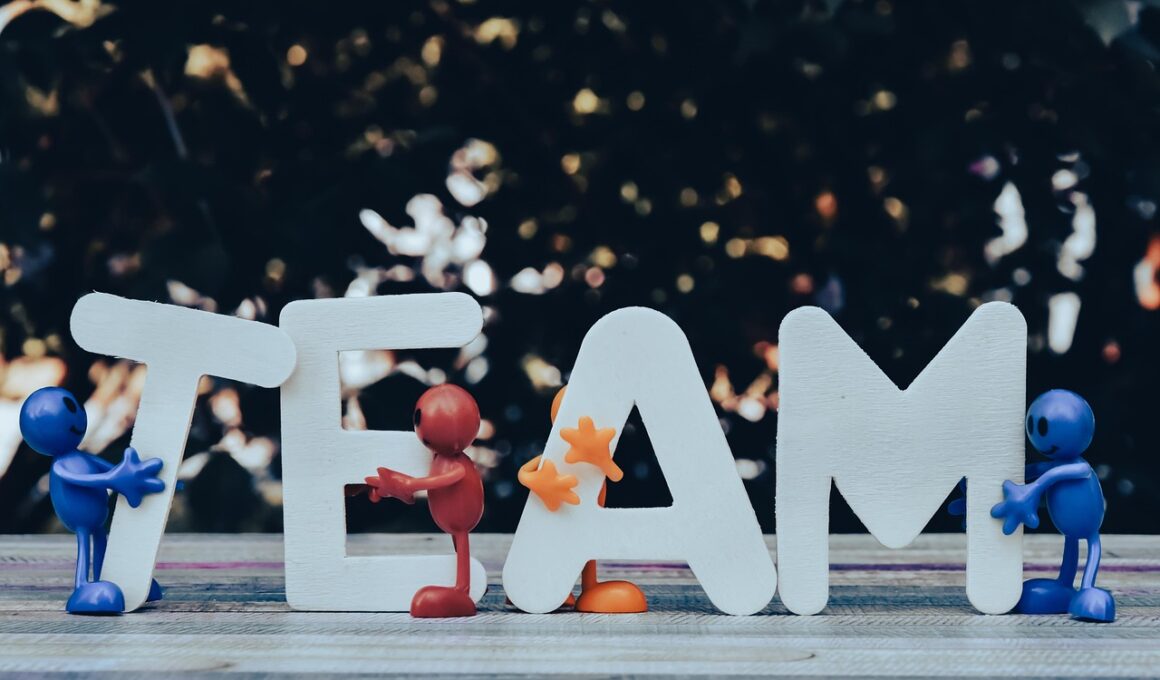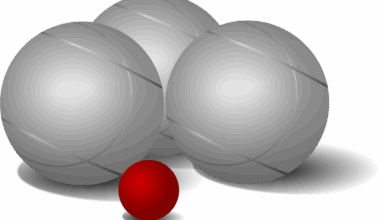The Influence of Group Goals on Team Performance
Team dynamics are significantly influenced by group goals, contributing to enhancing overall performance. When a team unites under a shared objective, it fosters a conducive environment for collaboration and accountability. Group goals encourage members to work collectively, promoting interpersonal relationships and effective communication. Clear, shared objectives help in aligning individual efforts with the team’s vision. Additionally, setting specific goals aids in tracking progress, reinforcing motivation and commitment. Feedback mechanisms are crucial in this process, allowing teams to adjust tactics and maintain focus. Regular assessment promotes a culture of continuous improvement. Successful teams often exhibit a strong sense of cohesion, built through shared experiences around these goals. This collective involvement also strengthens the team’s resilience against challenges. Research in sports psychology highlights that teams with clear group targets can enhance performance by 15 to 20 percent compared to those without. Notably, individual contributions become more meaningful towards achieving these goals. Therefore, integrating well-defined group objectives in training regimens is essential for optimizing team effectiveness. Teams not only strive for victory but also enhance personal growth and development through collaboration towards these common aims.
Understanding how group goals function requires examining the psychological principles behind team cohesion. Coach interventions that improve communication regarding collective objectives promote trust among players. With a strong foundation of trust, members feel secure in expressing ideas, leading to better-devised strategies. Tactics entwined with group goals foster greater participation levels, which is vital for achieving success. The shared responsibility created by such goals means every member is accountable, not just for personal actions but for the team’s performance. This collective accountability fosters motivation, resulting in less disengagement and higher levels of enthusiasm. Players are more likely to push themselves when they see a direct relationship between team efforts and successful outcomes. Even simple activities that reinforce team bonding serve to solidify individual commitment to shared goals. Opportunities for social interactions improve morale, boosting the overall environment within the team. Furthermore, research indicates that teams that prioritize both individual and group achievements perform better. By ensuring everyone feels recognized, the synergy within the team is maximized, providing an edge in competitive settings. Psychological factors such as motivation, trust, and accountability unite to create a formula for successful teamwork.
Impact of Defined Roles
Defined roles emerge as a crucial aspect of team dynamics when group goals are in focus. When individual responsibilities align with team objectives, members exhibit higher satisfaction and performance. Clearly defined roles reduce ambiguity, allowing players to understand their contributions toward achieving the larger goal. This clarity leads to enhanced performance and increased accountability. Members appreciate having delineated tasks, promoting ownership over the success of not just their individual roles, but the entire team. A well-structured approach establishes coherence among individuals, thereby fostering a sense of belonging. Players feel integral when they realize their efforts contribute toward collective achievement. This intrinsic motivation further ignites the drive needed for peak performance. Research reveals that teams with clear delineation of roles tend to resolve conflicts effectively and quickly since everyone knows their responsibilities. Furthermore, the confidence generated through clearly defined roles encourages players to communicate assertively. This communication is essential during high-pressure situations. Team strategies and adjustments can be implemented swiftly, yielding a decisive competitive advantage. Hence, integrating role definition in team settings can contribute significantly to performance, highlighting the psychological aspects of teamwork.
The role of leadership cannot be overlooked when discussing group goals in sports psychology. Coaches significantly influence team dynamics and cohesion through their guidance and approach toward goal-setting. A transformative leader will emphasize group objectives, motivating members to engage deeply. Leadership styles that promote inclusiveness foster an environment where team members express their ideas and concerns. This encourages team spirit and greater commitment to collective goals. Effective leaders also provide constructive feedback, guiding teams in assessing progress toward their targets. The motivational strategies leaders employ can elevate a team’s performance by enhancing goal clarity. In times of adversity, strong leadership can unify and refocus a team, ensuring that collective objectives remain at the forefront. A resilient team under effective leadership is better equipped to tackle challenges. Research suggests certain leadership styles produce outstanding results when aligned with shared goals. Maintaining open communication and a collaborative atmosphere is essential for growth and accountability. Innovation in training techniques, rooted in the fundamentals of group goals, is what propels a team toward its aspirations. Ultimately, effective leadership complements goal-oriented frameworks and can significantly impede or propel sports performance based on unity.
Strategies for Enhancing Team Cohesion
Various strategies can be employed to bolster team cohesion in relation to shared goals. Team-building exercises play a pivotal role in enhancing interpersonal relations among members, fostering trust and understanding. These activities range from workshops to outdoor challenges that promote collaboration and communication. By participating in team-building sessions, individuals learn to appreciate diverse strengths, thus inspiring a more unified effort toward group goals. Additionally, incorporating regular check-ins or meetings ensures every voice is heard, solidifying commitment to shared objectives. Celebrating small victories cultivates a positive atmosphere and reinforces the value of teamwork. Providing regular feedback creates an environment of continuous progress assessment, crucial for maintaining alignment with group goals. Workshops that emphasize goal-setting skills can further deepen understanding of how individual targets blend into collective aspirations. Furthermore, encouraging social interactions outside of training fosters personal relationships, ultimately translating into improved cohesion on the field. Educational sessions on sports psychology fundamentals can inform players how group goals impact performance. Overall, these multi-faceted strategies create the ideal setting for enhancing team dynamics, thereby uplifting performance and achieving the desired outcomes.
Measuring the impact of group goals on performance is paramount for continual improvement. Various assessment methods can be utilized to gauge a team’s alignment with its objectives. Surveys among team members can provide insight into perceived cohesion and collective commitment to these goals. Performance analytics can track outputs, indicating whether the integration of group goals yields concrete results. This empirical data can serve as a valuable resource in refining team strategies. Regular evaluations promote a culture of accountability, encouraging teams to stay motivated toward their shared vision. Additionally, analyzing performances post-competition reveals invaluable information on areas of strength and improvement. Open discussions during reflective sessions can help address gaps and reassess objectives, ensuring adaptability. Utilizing constructive feedback ensures that players understand their roles in reaching collective aspirations. This iterative process fosters resilience among team members and enhances future performance outcomes. Research within sports psychology corroborates that systematic approaches in measuring the effects of group goals significantly enhance team performance. Therefore, implementing structured evaluations is not merely beneficial; it is essential for maximizing a team’s potential in competitive environments.
Conclusion: The Power of Unity
In conclusion, the influence of group goals on team performance is profound and multifaceted. Sports psychology emphasizes the power of unity derived from collective objectives, reinforcing essential aspects like trust, accountability, and cohesion. Establishing shared goals fosters an environment conducive to improved collaboration and communication among team members. Empowering each player with well-defined roles realigns personal contributions to team success, creating a culture of ownership. Furthermore, strong leadership plays an integral role in guiding teams, especially when navigating challenges. Leaders who align their strategies with team goals facilitate a conducive atmosphere for optimal performance. Embracing strategies that enhance cohesion lays the groundwork for teams striving toward common aspirations. Additionally, the importance of measuring performance against these group goals cannot be underestimated, as it provides insightful feedback. Understanding these dynamics allows teams to adjust their approach continually, maximizing performance and ensuring engagement. As teams unite to pursue shared objectives, they not only achieve success but cultivate personal growth among members. Ultimately, the collective commitment to group goals remains a cornerstone for fostering high-performance teams in any competitive era.
The role played by effective communication within teams is complex yet crucial for achieving collective success. Clarity in objectives lays the foundation for transparency, bridging gaps that may hinder performance. Open conversations foster trust and respect, enhancing relationships among players and establishing a supportive environment. Teams that prioritize communication can preempt conflicts and address issues promptly, keeping focus on their goals. This proactive approach significantly contributes to maintaining motivation and cohesion. Ensuring that group objectives are regularly communicated creates a robust understanding across all members, aligning their efforts. Clear communication paths empower individuals to express their perspectives and ideas without hesitation. Incorporating team meetings regularly serves to facilitate discussions surrounding these goals, ensuring everyone feels included. Additionally, leveraging technological tools can bolster communication effectiveness, especially during remote interactions. Tools like group messaging apps enhance real-time sharing of thoughts and feedback, facilitating quick resolutions. Research also highlights that consistent team dialogue can foster commitment levels to group goals substantially. Consequently, investing time in developing communication skills is essential for teams aiming to improve dynamics and achieve cohesive performance.


